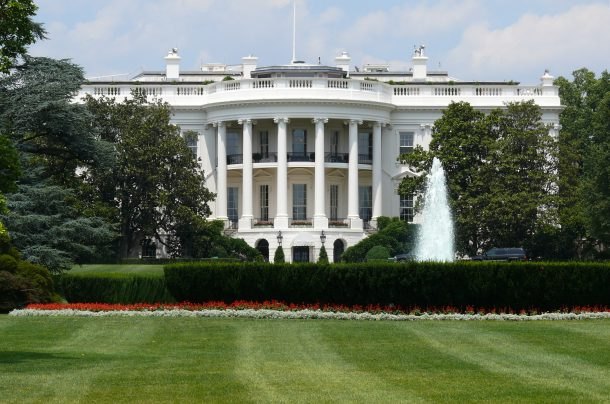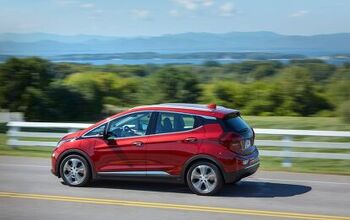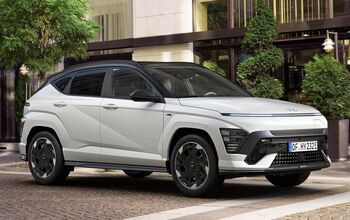The Big Three Go to Washington: Breakfast Ensues, While Mexico Stews

At the start of the second real workday of the Trump administration, the leaders of the Detroit Three automakers marched into the White House for a breakfast meeting with their newly minted president.
We don’t know for sure what they ate, but we can relate what they talked about. This won’t come as a shock: investment. Specifically, assembly plant investment in the U.S., rather than Mexico.
Ford CEO Mark Fields, General Motors CEO Mary Barra and Fiat Chrysler Automobiles CEO Sergio Marchionne knew the landscape they were entering. Yesterday, Trump signed an executive order that pulled the U.S. out of the Trans-Pacific Partnership and moved to renegotiate the North American Free Trade Agreement. Today, he signed an executive action to advance approval of the Keystone XL and Dakota Access pipelines.
Deals. Besides perhaps eggs and toast, Trump wanted deals. Or, at this early point, promises and assurances at the very least.
Speaking of toast, Trump did some of the buttering yesterday. On Monday, he signaled his intention to reduce corporate tax rates to somewhere between 15 and 20 percent, and pledged a 75 percent reduction in the regulations affecting companies.
“We want regulations, but we want regulations that mean something,” Trump reportedly told the assembled breakfast guests.
While he wasn’t specific, his remarks could indicate a looming change in fuel economy standards — something automakers have demanded for years. The Environmental Protection Agency firmed up the industry’s 2025 gas mileage rules in the final days of the Obama administration.
“I am, to a large extent, an environmentalist,” Trump told the three. “I believe in it. But, it’s out of control.”
All three automakers made post-election overtures to Trump, who campaigned on returning jobs lost to cheap Mexican manufacturing to American soil. Ford scrapped a Mexican small car plant and invested in Michigan, while GM and FCA handed out their own U.S. checks. (Those investments were, for the most part, contained in long-term plans.)
“We have a very big push on to have auto plants, and other plants,” Trump told the executives. “We’re going to make the process much more simple for the oil companies and everybody else that wants to do business in the United States.”
Fields, a vocal opponent of TPP, sounded the most cheerful when leaving the hour-long meeting. The CEO said his company and the auto industry wanted to work with Trump to “really create a renaissance in American manufacturing.” Barra said she sees a “huge opportunity” in working with the president to “improve the environment, improve safety and improve job creation.”
Bringing up the rear of the enthusiasm train, Marchionne said the meeting was a positive one.
Trump made a point of claiming that the automakers weren’t being singled out for special treatment. The administration’s future policies target all industries, he claimed.
So, plenty of talk, but precious little information. Meanwhile, the country that has seen its industrial base grow exponentially with the help of foreign automakers is getting nervous. Mexico hosts a slew of assembly plants from various automakers, but a renegotiated NAFTA could see it lose its edge. The country wants to keep the same terms or it will pull out of the agreement.
“There could be no other option. Go for something that is less than what we already have? It would not make sense to stay,” Mexican Economy Secretary Ildefonso Guajardo said today.
If Trump keeps his pre- and post-election promises, Mexico will certainly face increased tariffs on exported vehicles as a price for staying in NAFTA. If Mexico balks at the idea (and it just did), the agreement could end up scrapped. Bilateral talks between the U.S., Canada and Mexico would then fill the void.
[Sources: Bloomberg, Detroit Free Press, CNBC] [Image: Ad Meskens/ Wikimedia Commons ( CC BY-SA 3.0)]

More by Steph Willems
Latest Car Reviews
Read moreLatest Product Reviews
Read moreRecent Comments
- Calrson Fan Jeff - Agree with what you said. I think currently an EV pick-up could work in a commercial/fleet application. As someone on this site stated, w/current tech. battery vehicles just do not scale well. EBFlex - No one wanted to hate the Cyber Truck more than me but I can't ignore all the new technology and innovative thinking that went into it. There is a lot I like about it. GM, Ford & Ram should incorporate some it's design cues into their ICE trucks.
- Michael S6 Very confusing if the move is permanent or temporary.
- Jrhurren Worked in Detroit 18 years, live 20 minutes away. Ren Cen is a gem, but a very terrible design inside. I’m surprised GM stuck it out as long as they did there.
- Carson D I thought that this was going to be a comparison of BFGoodrich's different truck tires.
- Tassos Jong-iL North Korea is saving pokemon cards and amibos to buy GM in 10 years, we hope.


































Comments
Join the conversation
Good thing we got rid of Bark M. so we won't have these pesky political discussions anymore!
As long a Trump picks his fight with Mexico it will only really hurt Mexico. If he goes all protectionist with China, say hello 1930's depression....